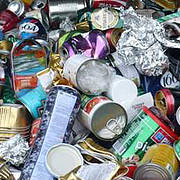Showing the way
02 August 2012 | Article
Although momentum towards a green economy is steadily building, progress has been painfully slow so far. It’s not that the knowledge of how to achieve a fairer, more stable economic system is lacking, simply the political will.
Many people doubt the ability of governments to commit to the necessary laws and policies and are taking matters into their own hands. Municipal councils, business associations and community groups are all getting on with the business of sustainability.
At the IUCN Congress we’ll be highlighting some of these examples, sharing lessons learned and showing how these efforts can be scaled up to regional and global levels.
“There are many events focused on how investing in nature can lead to a more prosperous and responsible economy,” explains Michael Verdone of IUCN’s Global Economics Programme.
The IUCN Congress will help bridge the debate and decisions of the recent Rio+20 conference with those of the Convention on Biological Diversity conference that takes place in October. Some of the sessions will draw on the themes of the Rio outcome document, including ‘beyond GDP,’ sustainable development goals, and sustainable consumption and production and link them to implementation of the CBD.
“A priority for us will be to promote nature-based development solutions as a path to a greener economy and the role of identifying and capturing natural wealth for human well-being through economic valuation methods,” says Michael.
The Congress will examine a broad cross-section of issues from high-level policies including how to align fiscal policies such as fuel or agricultural subsidies with social and environmental considerations, down to grassroots initiatives such as local council incentives to promote recycling or green transport.”
One of the Congress workshops ‘tackling the ecosystem challenge’ looks at business solutions for a sustainable world. Effectively managing ecosystem-related risks and opportunities can make companies more competitive and agile in a fast-changing world. Companies are consequently more active on the subject and are implementing a range of solutions on the ground.
The links between agriculture, food security and biodiversity is another focus of events. Between now and 2050, it is estimated that food production worldwide will need to grow by 70%.
Agricultural development has often been one of the key sources of biodiversity loss as new land is brought into production to meet increased demand. However, agricultural systems also depend on natural systems such as rivers and forests for their overall survival.
One of the Congress sessions will look at the possible scenarios for meeting the increasing demand for food, and how conservation and agriculture can be better aligned to ensure that biodiversity is addressed even as production intensifies.
“The Congress will be a true melting pot of ideas, expertise and solutions, says Michael Verdone. “The beauty of the event is that it brings diverse groups of people around the same table to thrash out solutions to key challenges as well as how to capitalise on the vast economic opportunities that nature conservation presents.”
For more information contact:
Michael Verdone, michael.verdone@iucn.org







